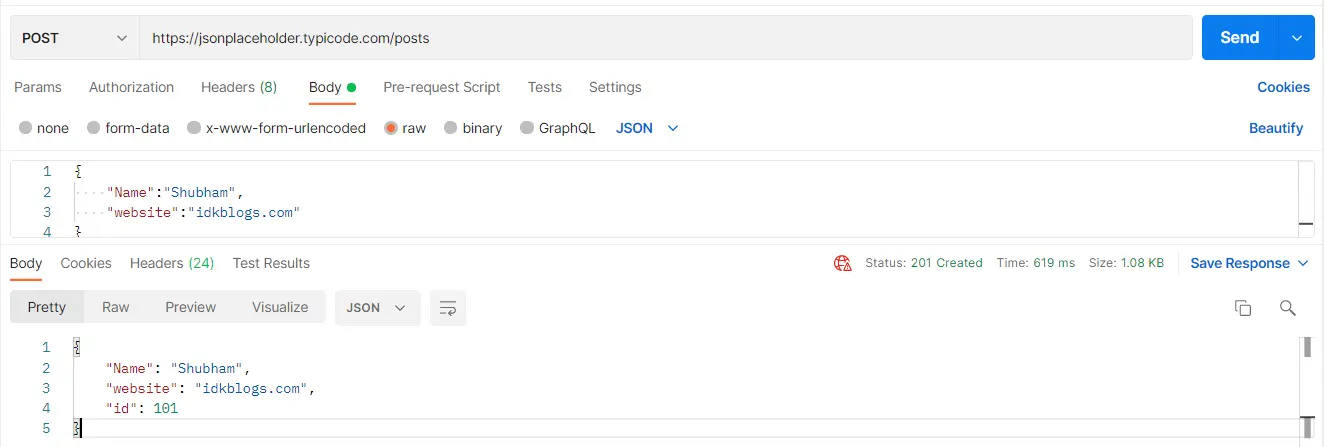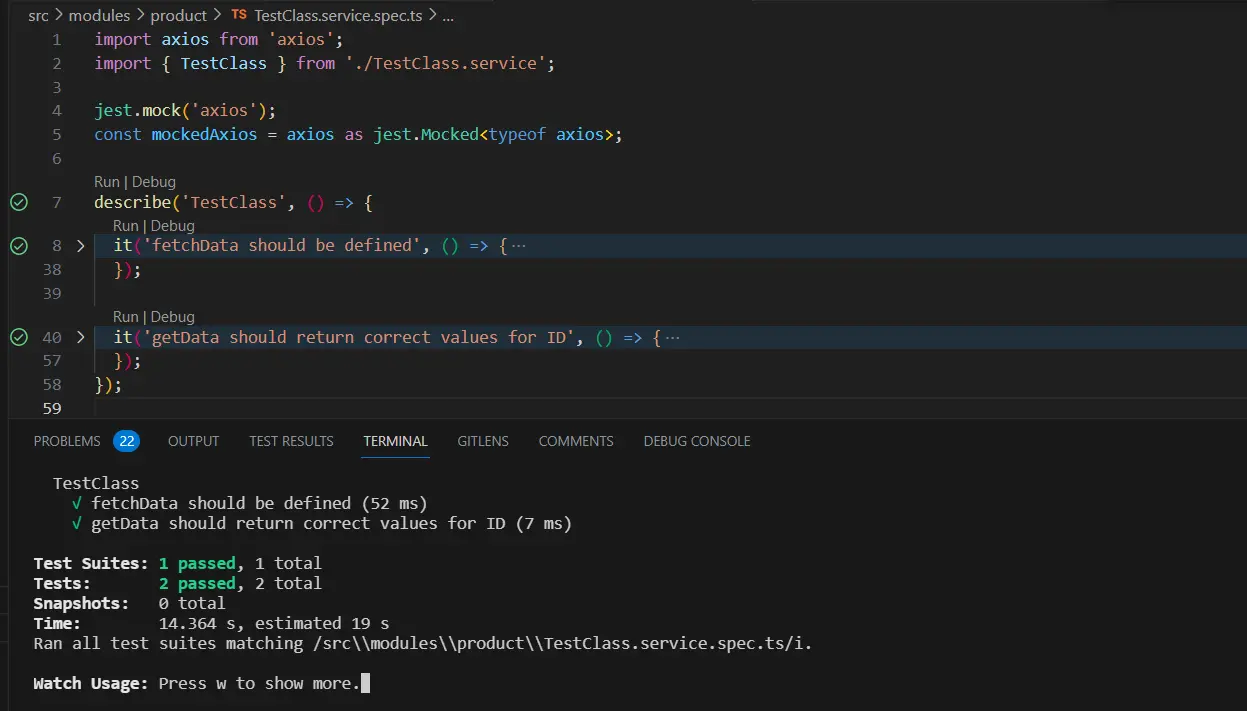
Write Test Cases for Class Methods with POST API Call
When developing software applications, it's crucial to ensure that the code behaves as expected under different scenarios. One common aspect of modern applications is making API calls to retrieve or manipulate data from external sources. Writing effective test cases for methods that involve API calls helps ensure that these methods work correctly, providing reliable functionality to the application. In this article, we'll explore the process of writing test cases for methods that make API calls, and we'll also discuss the advantages and disadvantages of test case implementation.
The Scenario
Let's consider a scenario where we have a TypeScript class TestClass that makes an API call using the Axios library to fetch data from a remote server. We'll focus on testing the method responsible for fetching data and storing it within the class.Here's a simplified version of the TestClass class:
TestClass.service.ts:
POST API Call

Write Test Cases for Class Methods with POST API Call
Writing Test Cases
To test the fetchData method, we need to create a test suite that covers different scenarios: successful API calls and error handling. In this example, we'll use the Jest testing framework for demonstration purposes.Test Case for TestClass.service.spec.ts:
Understanding of above test case:
Explanation of the steps:
-
The test case starts with an
itblock, which describes what the test is going to verify. In this case, it's checking whether thefetchDatamethod is defined and behaves as expected. -
A mocked response object (
response) is defined, simulating the data that the API call is expected to return. -
An instance of the
TestClassis created (instance) to test its methods. -
The
jest.spyOnfunction is used to create a spy on thepostmethod of themockedAxiosobject. This allows you to track when and how thepostmethod is called. -
The behavior of the
postmethod is mocked using thehttp.mockImplementationmethod. If the URL contains a specific string, it returns theresponseobject. -
Similarly, a spy is created on the
fetchDatamethod of theTestClassinstance usingjest.spyOn. -
The behavior of the
fetchDatamethod is mocked to return theresponseobject. -
The request data (
req) is defined, simulating the data that will be passed to thefetchDatamethod. -
The
fetchDatamethod is called with the request data, and the result is stored in theresultsvariable. -
A series of assertions are made to verify the behavior of the
fetchDatamethod:
-
expect(results).toBeDefined();: Checks if the result is defined. -
expect(results).toHaveProperty('Name');: Checks if the result has a 'Name' property. -
expect(results).toHaveProperty('website');: Checks if the result has a 'website' property. -
expect(results).toHaveProperty('id');: Checks if the result has an 'id' property. -
expect(results).toEqual(response);: Checks if the result matches the expectedresponseobject.
In summary, this test case verifies whether the
fetchData method of the TestClass class behaves
correctly when making an API call. It uses spies and mock implementations
to control and simulate the behavior of external dependencies, allowing
controlled testing of the method's logic and behavior.
Advantages of Writing Test Cases
-
Validation of Functionality: Test cases help ensure that methods behave as intended, preventing unintended side effects or errors in the code.
-
Regression Prevention: Whenever changes are made to the codebase, running tests helps catch regressions – unintended issues that arise due to new changes.
-
Documentation: Well-written test cases serve as documentation for how the methods should be used and what outcomes are expected.
-
Refactoring Confidence: When refactoring code, having comprehensive test coverage gives developers the confidence that they haven't broken existing functionality.
-
Collaboration: Test cases make it easier for multiple developers to collaborate on a project, as they provide a clear understanding of the expected behavior.
Disadvantages of Writing Test Cases
-
Time and Effort: Writing and maintaining test cases require additional time and effort during development, potentially slowing down the process.
-
False Sense of Security: Passing tests don't guarantee bug-free software; there might be scenarios not covered by the existing test cases.
-
Maintenance Overhead: As the codebase evolves, test cases might need to be updated, which can introduce its own maintenance challenges.
-
Complexity: Writing tests, especially for complex scenarios, can be challenging and might lead to additional complexity in the test suite.
-
Overhead on Small Projects: For small projects or prototypes, the overhead of writing extensive test cases might outweigh the benefits.

Write Test Cases for Class Methods with POST API Call
Conclusion:
Writing test cases for methods that make API calls is a critical aspect of software development. It ensures that the code functions as intended, even when interacting with external services. By following best practices and considering the advantages and disadvantages, developers can strike a balance between test coverage and development speed, ultimately creating more robust and reliable applications.Related Keywords:
How to Write Unit Tests for Instance Methods
How do you write a test case for a class?
Write Simple Test Case Using Classes
How to test class methods with jest (on return values)
How to test classes with Jest
Support our IDKBlogs team
Creating quality content takes time and resources, and we are committed to providing value to our
readers.
If you find my articles helpful or informative, please consider supporting us financially.
Any amount (10, 20, 50, 100, ....), no matter how small, will help us continue to produce
high-quality content.
Thank you for your support!
Thank you
I appreciate you taking the time to read this article. The more that you read, the more things you will know. The more that you learn, the more places you'll go.
If you’re interested in Node.js or JavaScript this link will help you a lot.
If you found this article is helpful, then please share this article's link to your friends to whom this is required, you can share this to your technical social media groups also.
You can follow us on our social media page for more updates and latest article updates.
To read more about the technologies, Please
subscribe us, You'll get the monthly newsletter having all the published
article of the last month.
















